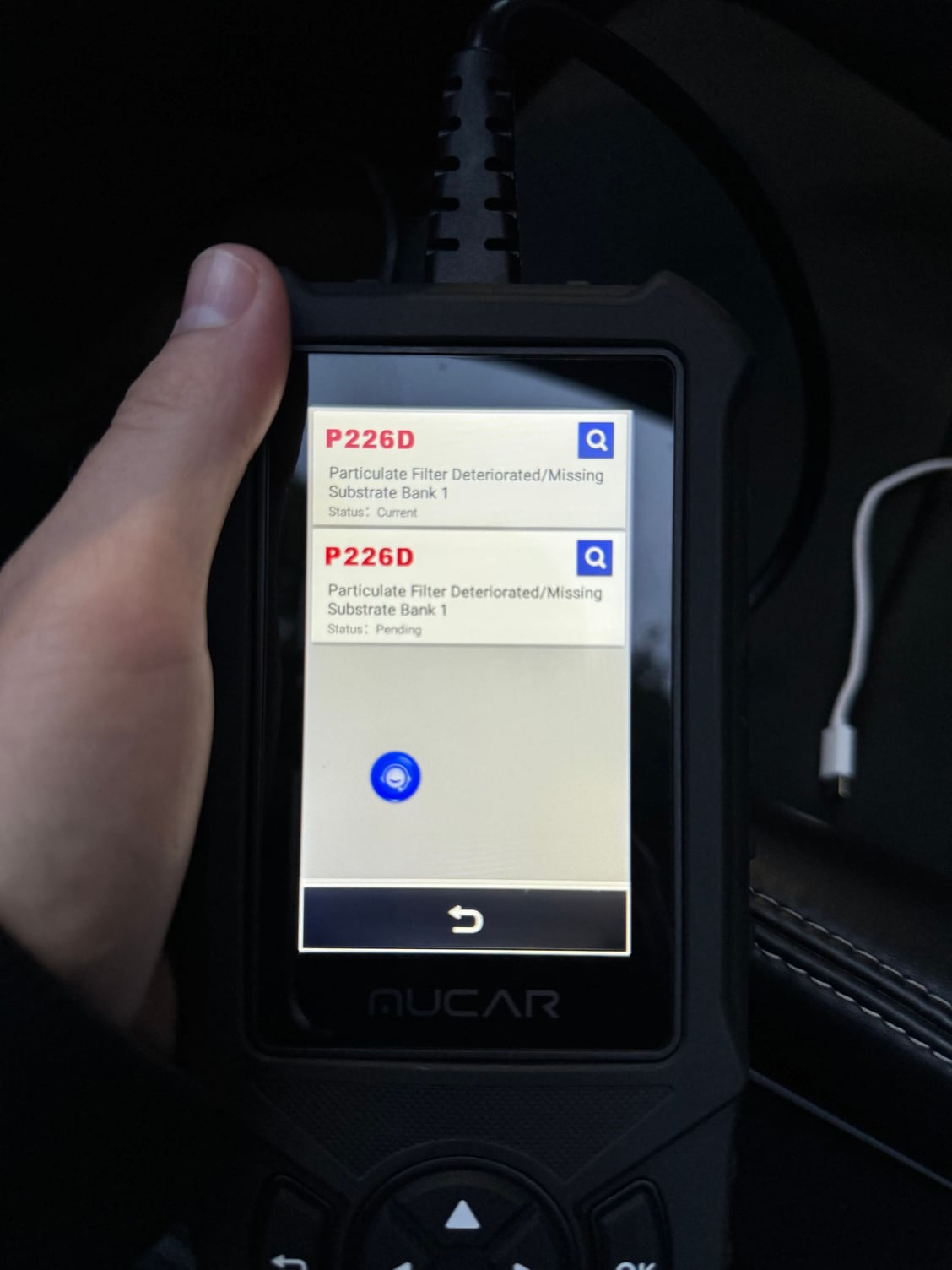Hi Guys
Hope you are all well,
Just had another Cayman owner contact me over the weekend with another GPF issue, same 2.0 and same year 2019, same fault code.
Have been looking at another Vehicle Analysis Log that reported a faulty GPF filter, and have broken it down to these separate sections.
K211 Particulate filter bank 1 soot load calculated 3.92%
K221 Particulate filter bank 1 soot load measured 0.00%
K231 Particulate filter bank 1 oil/ash load measured 100% (this reading condemns the GPF)
T255 Particulate filter bank 1 exhaust gas temperature in the filter, calculated 361.60 degrees
T251 Particulate filter bank 1 exhaust gas temperature, upstream of filter, calculated 8.91 degrees
K251 Particulate filter bank 1, differential pressure sensor, current value, 0.00 hPa
If you look at these actual values you can see that both the GPF filter temperatures, are calculated, not actual.
And the upstream temperature cannot be true, it means that if you touch the GPF at one side, it would burn your skin, and the other side you could put your hand around it.
Regarding the soot readings, we have been told that when the soot loading is at a high level the particulate warning light will come on, to instruct the driver to carry out a regeneration as per the handbook.
None of drivers have seen this warning light, they only see the engine management light come on.
In all the Vehicle Analysis Logs I have seen, the soot readings only seem to show one actual value, out of two, and they change.
These vehicles have 3 lambda sensors fitted to the exhaust system, and 1 differential pressure sensor.
There is no exhaust temperature sensor fitted to these cars, so how does the ECU know how hot the exhaust is at any time.
Bearing in mind we need around 600 degrees of heat to turn the soot into ash, how can this work with calculated and inaccurate temperature readings.
Could it be the these calculations come from the the readings off the differential pressure sensor, as this is the only one that reports a current value.
The differential pressure sensor tends not to show a value, if the oil ash load is around 100%
If this sensor fails to work, then the excessive soot load will take out the GPF.
Are all these GPF blocked, has anybody checked with a simple vacuum gauge to see if they are blocked, has no lack of performance as been reported in all the cars I have dealt with, yet they reading 100% measured.
Regarding my favourite, the AOS (air oil separator), this component can certainly take out a GPF filter, as the vacuum increases more oil droplets are sucked into the engine, which in turn creates more soot, and more ash.
This component is not electrically monitored, and is under the radar, if its not checked on a regular basis, by using a manometer, then no wonder we are having problems.
I believe that the reason we seem to be having issues on these cars 5 years down the line, could be the AOS.
And I believe that if the GPF control values made some sense, then things could be very different.
Any feed back from this post would be appreciated
Regards
David
Cycle motor 1958










